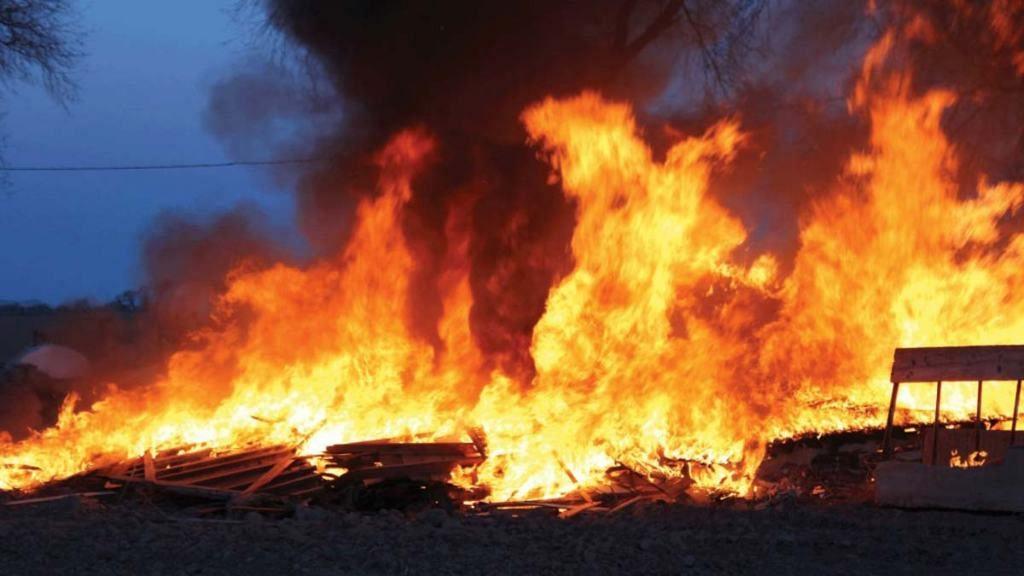Hundreds of Nigerians in the Nembe Local Government Area of Bayelsa on the Niger Delta were forced to flee their villages after one of the numerous oil pipelines in the region exploded around 4 am on Friday morning.
According to a local chief, a “huge inferno” rose along the course of this pipeline which runs across six local communities in the region. According to reports, at least 50 people have gone missing in the stampede that ensued as people scrambled to run away from the blaze.
The pipeline is currently owned by the Aiteo Group, a Nigeria-based private corporation, which acquired it from the Shell Petroleum Development Company (SPDC) for USD 1.7 billion in a controversial deal in 2014.
A PR manager of Aiteo, the firm operating the 97-kilometer long Nembe Creek Trunk Line (NCTL), told News Agency of Nigeria that this line, which supplies 150,000 barrels of crude oil to Bonny Oil export terminal, had been shut for repair. “There is no official statement at the moment but I can gladly inform you that the fire has been contained and no lives were lost,” he said.
However, the spokesperson of the Nembe Chiefs Council, James-Eriworio, complained that the leak from this pipeline had covered the surface of the river in the area with a layer of grease, making it dangerous for the local communities to navigate or fish.
“As of early morning of Saturday, the fire is still raging. And with gas and crude leak flowing freely, you can then imagine the fate of our people,” he said, adding, “The poor response of Aiteo to this incident is not acceptable and is questionable. The people are traumatized and their health put at risk.
An Amnesty International report, titled “Niger Delta Negligence”, stated that between 2011 and 2017, the biggest polluter in the region, Shell, “reported 1,010 spills, with 110,535 barrels or 17.5 million litres lost. That’s about seven Olympic swimming pools.”
“These are huge numbers, but the reality may be even worse. The company’s figures are vastly different than those of the Nigerian government, which recorded 1,369 Shell spills,” the report further stated, indicating underestimation in reporting by the company. This interactive map shows the rate at which oil spills in the region by Shell are increasing.
The consequences of this contamination of one of the most biodiverse regions of the world will be felt far and wide. However, the worst affected have been the local communities, whose livelihoods, like agriculture and fishing, have been rendered unviable in many places due to pollution of rivers and poisoning of groundwater. Many of these communities, who gain little from the oil extracted in the region, have been opposing Shell for decades.
Acquisition of one of its pipeline by Aiteo without consultations with the local community has not been received well. Complaining about the company’s “attitude towards the host communities in Nembe”, James-Eriworio said, “We are concerned that Aiteo, despite the clandestine acquisition of the asset from [Shell] without due consultation with the people, has continued to undermine the economic rights of the people.. They have abused the rights of the people. We are ready to drag the company before the National Assembly and the Presidency.”





